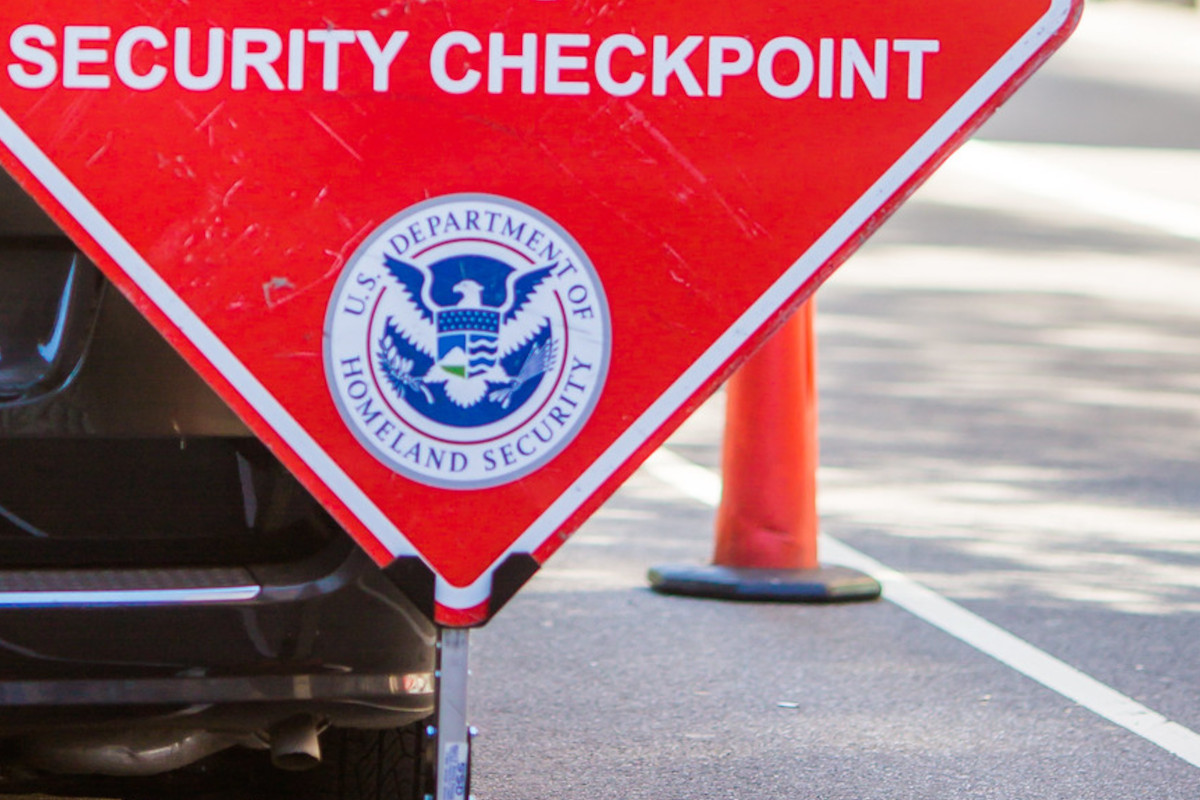Risk screening and watchlists: Europol and Frontex reports on development of the “permission to travel” system
Topic
Country/Region
17 January 2024
Reports circulated by Europol and Frontex to member states last October show that the development of the European Travel Information and Authorisation System (ETIAS) was – at least at the time – still plagued by delays, which both agencies blame on eu-Lisa, the EU’s database agency. Frontex’s report says the delays were causing problems for the “assessment functionality for the risk screening of the ETIAS applications,” through which travellers will be profiled. Meanwhile, Europol continues to develop its new “watchlist” of potential terrorists and criminals, and is seeking permission to use data supplied by non-EU states in the assessment of travel applications.
Support our work: become a Friend of Statewatch from as little as £1/€1 per month.

Image: Anders Sandberg, CC BY-NC 2.0
The ETIAS will be used to check and store applications for “travel authorisations” by citizens of countries who do not need a visa to enter the EU. All applicants will be profiled on the basis of a set of "risk indicators" and Europol is to host a new "watchlist" of individuals considered to be connected with crime and terrorism. The ETIAS and other EU border plans were analysed in detail in the Statewatch report Automated Suspicion.
Development reports
Both reports cover developments between April and September 2023.
The Frontex report (pdf) notes that the "highest priority risk" for the project:
“…resides on the current lack of the Carrier and Traveller Support Tools due to the delays in their development by the eu-LISA, as well as the risk of not completing on time the sections of the ETIAS website related to the exercise of data subject rights and appeals due to missing input from some Member States for ETIAS. At this stage such risks do not yet appear critical.”
The report explains the structure of the ETIAS Central Unit, which will be hosted by Frontex:
“The ETIAS Central Unit Division is currently divided into the following units and offices:
(a) the Application Handlers' Unit, which shall be responsible for the processing of applications of third-country nationals for an ETIAS travel authorisation, operating 24 hours a day, 7 days a week.
(b) the Assistance Centre Unit which shall be responsible for assisting travellers, carriers, and border authorities, operating 24 hours a day, 7 days a week.
(c) a Data Management Office responsible for carrying out the self-monitoring and data controller functions for the data processed by the ETIAS Central Unit Division.
(d) a Coordination Office, providing business management, corporate planning, and reporting, as well as horizontal coordination for the ETIAS Central Unit Division.”
Member state delays
The report notes that some member states had not yet responded to requests for approval of "templates containing the appeal process information," needed for would-be travellers to the EU who wish to appeal against refusal, revocation or annullation of a travel authorisation.
Some member states appear to have been slow in responding to requests for information on this issue: "The communication with the two Member States (Greece, Cyprus), which had not provided any input during the previous reporting period, was established, and developing," says the report.
Meanwhile, "templates for the exercise of data subject rights are still under development," and there are some member states - which are not named - which "have not adopted the ETIAS related legislation," including some which "have not provided procedures for appeals and data protection."
The report notes: "The lack of publication of this information in the ETIAS public website would constitute a compliance issue.”
Working groups
Frontex was also planning to hold a first workshop on data protection in relation to ETIAS in the following report period, from October 2023 to March 2024. The Europol report says that this was due to be held on 18 October.
Other working groups have been given more substantial attention. During the reporting period: "The fourth meeting of the Working Group on Setting up of the ETIAS Screening Board (ESB), as well as the fourth meeting of the Working Group on Risk Screening Operations took place in the reporting period.”
Risk screening
The report also notes potential problems with not having the "ex-post/ex-ante assessment functionality for the risk screening of the ETIAS applications" developed on time, or of it not being "compliant with the functional needs for the risk screening rules."
It goes on to say:
“The ex-post-ex/ante assessment functionality would not be developed on time or would not implement all the necessary requirements to execute reliable assessments of the risk indicators and the screening rules because the interpretation of the legislation leads to different conclusions in relation with the technical implementation between eu-LISA and ECU.
The lack of this functionality or a partial implementation of it would constitute a compliance issue."
Europol's efforts
The Europol report (pdf) notes that the agency's preparations "were significantly affected by the delays in the development of the EITAS Central System as a result of issues which emerged in the development of the Entry/Exit System" that "continue to be delayed until further notice by eu-Lisa."
It goes on to say that despite "certain progress... various ETIAS Central System related developments and testing activities continue to be delayed until further notice by eu-LISA. The delays with respect to the ETIAS Central System are creating challenges for planning and resourcing the ETIAS project (and other EU interoperability projects) at Europol."
Internally, the policing agency has set up "a new unit in Operations Directorate, O1-3 Integrated Operational Services, that is dedicated to the operational implementation of the Agency’s tasks stemming from the Interoperability Agenda, including assessing the hits referred to Europol in ETIAS manual process and providing reasoned opinion on the potential risks a Third Country National may pose when travelling to Europe.”
Police opinions
Europol's key role in ETIAS is providing opinions on applications that contain data matching that stored in the agency's databases, and this requires working more closely with third countries that supply data. The report says:
“Europe’s ability to detect security risks posed by travellers wishing to come to Europe is often dependant on the relevant and up to date information received rom the countries of origin of these travellers… [Agreements] with a number of trusted Third Parties… allows the exchange of personal data to contribute to realising safety. Europol has carried out a number of outreach activities with key Third Parties to raise their awareness of the future use of Europol data (including the data provided by those Third Parties) in the context of ETIAS... This work will continue and will be extended.”
Watchlist
The development of the "ETIAS Watchlist related workflows" and Europol's internal tool for managing the list, meanwhile, "are making progress and are reaching a good level of stability allowing to start the formalisation of the process in a Management Board Decision."
A workshop organised by Frontex and Germany took place in Frankfurt in late September, with the objective to improve the understanding of Europol's procedures related to the queries performed by the ETIAS Central System in the Europol information systems and the ETIAS Watchlist.” Europol, the Commission and seven member states took part.
The report goes on to say:
"Europol has identified a number of selection criteria for the data that could be entered in ETIAS Watchlist by Europol. Additionally, the ETIAS Watchlist entries are envisaged to be created based on individual assessment of each entry only, ensuring they fulfil the requierments for quality, completeness and operational value. The intended use of the ETIAS Watchlist by Europol and related principles have been discussed with both Europol and ETIAS communities, however the discussions will continue to ensure alignment between all stakeholders. Europol also participates in the Frontex working group on setting up the ETIAS Screening Board where setting the threshold (and related rules of procedure) for the impact assessment of potential ETIAS Watchlist entries for Member States and Europol is high on the agenda.”
Data quality questions
The agency has also presented Europol National Units - member state offices working with the agency - with "the matching rules to be used when comparing travel application data against Europol data."
"Based on Member States feedback, Europol will plan activities with the aim of improving data quality and completeness in Europol Information System, the main source of Europol data in ETIAS automated process… in September 2023, Europol has introduced the matching rules to ETIAS Central Unit at Frontex to facilitate their work on verifying the hits," says the report.
Staffing problems
Europol appears to be facing staffing problems in relation to ETIAS, and will "host the additional 5 Temporary Agents and 20 Contract Agents as a result of an agreement with Frontex on the temporary transfer of these posts to Europol until 2027 in support of ETIAS related tasks.” However, even with 20 agents seconded from Frontex, Europol's foresees need for 38 full-time equivalent posts.
One of the risks highlighted in the report is "Lack of resources for operational staff," and it says that if the agency is not given additional funding then it may not be able to meet its legal obligation to provide an opinion on travel authorisation applications within 60 hours.
The report also notes that work on ETIAS at Europol " is highly dependent on external contractors. Delays in recruitment or unavailability of relevant expert profiles but also the limited duration of contracts (max 2 years according to Dutch law) will thus impact the progress of Europol’s delivery of ETIAS work."
Documentation
- Frontex report on the ETIAS state of preparation (Council doc. 14648/23, LIMITE, 30 October 2023, pdf)
- Europol report on the ETIAS state of preparation (Council doc. 14881/23, LIMITE, 30 October 2023, pdf)
Our work is only possible with your support.
Become a Friend of Statewatch from as little as £1/€1 per month.
Further reading
Frontex working groups
Frontex rules on the creation and functioning of internal working groups, and a chart of working groups as of early October 2023.

Database delays: new timetable for interoperable EU policing and migration systems by 2027
EU interior ministers have agreed another revised timeline for the plan to make all justice and home affairs databases "interoperable", with the aim now to have the systems up and running by 2027. Mandatory biometric border checks may now be introduced progressively, in the hope of limiting delays at border crossing points.

Not so interoperable: discussions underway to “decouple” launch of new EU border databases
Ongoing delays to the Entry/Exit System (EES) may mean the European Travel Information and Authorization System (ETIAS) is put into operation first, in a break with previous plans.
Spotted an error? If you've spotted a problem with this page, just click once to let us know.

